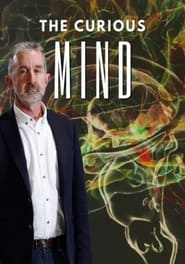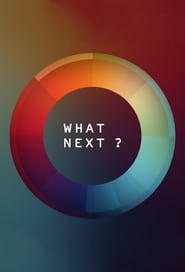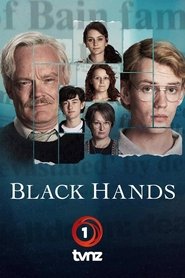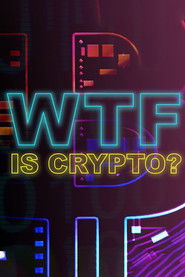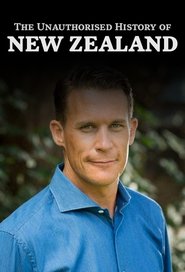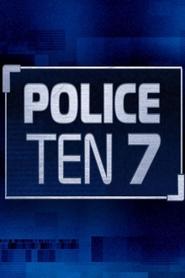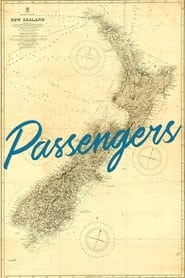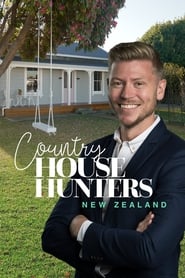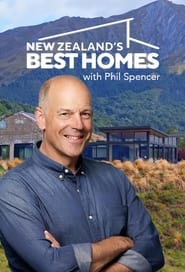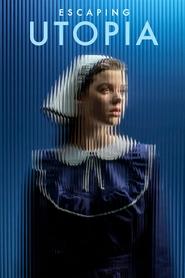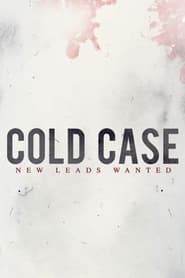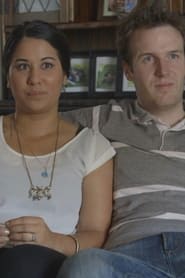Tvnz 1 TV Series - Page 5
-
So You Wanna Be a Popstar?
0000
So You Wanna Be a Popstar? is a New Zealand celebrity karaoke reality series that pits celebrities against each other in front of a judging panel. -
Stars in Their Eyes
2008
Stars in Their Eyes
2008
Stars in Their Eyes is a TVNZ talent show, based on the original British version. It is hosted by Simon Barnett. -
The Curious Mind
2018
The Curious Mind
2018
Nigel Latta goes on a fascinating journey to explore the miracles of the human mind with the help of BabyX, one of the most advanced Artificial Intelligence models on the planet. -
Close to Home
0000
Close to Home
0000
Close to Home is a New Zealand television soap opera which ran on Television One from 1975 to 1983. Set in a suburb of Wellington, it originally revolved around the trials and tribulations of the Hearte family. Most of the Hearte children were written out of the show within its first two years. The older members of the Hearte family remained through most of the show's run and later storylines revolved around their interactions with neighbours and friends. A high point of the series occurred in 1982 with the wedding of Gayle and Gavin. Rehearsals took place in a local community hall in Avalon, and “Close to Home” was mostly shot in the largest NZBC TV studio, No 8, at Avalon Studios, Avalon, Lower Hutt, which had sets round the studio of rooms in various characters’ houses plus the bar of the local hotel. It was criticised for the number of scenes set in the bar, but that was the only place apart from private homes that scenes could be set in without going on location, which was infrequent. The sh -
What Next?
2017
What Next?
2017
Nigel Latta and John Campbell and a team of internationally recognised NZ 'futurists' will ask the big question : What do we want our lives to look like 20 years from now? Using social media, viewers will be encouraged to be part of the conversation, creating a unique national conversation. Topics explored will include the impact of technology, the changing environment, the economy and the lifestyle we want for the future. -
Black Hands
2020
star 7On June 20, 1994, five members of the Bain family were found dead in their Dunedin home. The atrocity captured the nation, and it remains one of New Zealand’s most controversial cases. This dramatised version tells the story of each of the family members in the months leading up to their deaths. -
WTF is Crypto?
2023
WTF is Crypto?
2023
Curious about cryptocurrency but not sure what it all means? We take you inside New Zealand's digital wild west, meeting some of the Kiwi crypto pioneers at the cutting edge of this new frontier. -
The Unauthorised History of New Zealand
2005
star 10The Unauthorised History of New Zealand is a New Zealand comedic history talk show series that tells the "real truth" behind the history of New Zealand. Some of the archive footage seen on the show has never been seen on television before because it was deemed too shocking by TV executives to screen at the time. Some material created for the programme, including the 1920s-style animated series Happy Hori, is presented as though it were archival. This country was shaped by visitors and the first episode examines the impact of such diverse guests as sheep, Colonel Sanders, the Shah of Iran and Muhammad Ali on New Zealand. Famous troublemakers such as Hongi Hika, the Ingham Twins and the Neil Roberts' feature in an episode devoted to Trouble. Other episodes in the series consider some of the country's most powerful people, its legends, and reveal some of the most shocking and sexiest moments in the nation's history. -
Police Ten 7
0000
Police Ten 7
0000
Police Ten 7 is a New Zealand reality television show, produced by Screentime with the assistance of the New Zealand Police for Television New Zealand's TV2. The show profiles wanted criminals and asks the public to help the police in their search for them. In addition, the programme follows the work of police officers in their patrols and other police activities. The show is hosted and narrated by Detective Inspector Graham Bell. It also airs in Australia on Fox8. Police Ten 7 takes its name from the New Zealand Police ten-code 10-7, which means "Unit has arrived at job". -
Passengers
2023
Passengers
2023
Journey back through the hardships and triumphs of some of Aotearoa's earliest Anglo Indian, Cook Island, Chinese & Bohemian settlers through the lens of their modern day descendants. -
Country House Hunters New Zealand
2023
With the help of Matt Gibb, Kiwi couples escape the rat race to look for their dream homes in regional New Zealand. -
New Zealand’s Best Homes with Phil Spencer
2024
Join property expert Phil Spencer (Location, Location, Location) as he takes viewers on a tour of some of Aotearoa's most stunning homes and gives a glimpse into the lifestyles they have to offer. -
Escaping Utopia
2024
star 8.5Uncover New Zealand’s most extreme religious cult, Gloriavale, and the true stories of people attempting to break free, including current and former members that have never gone on record before. Made with support from NZ on Air. WARNING: Deals with the issue of sexual abuse. -
Cold Case
2018
Cold Case
2018
A team of specialist detectives re-look at some of New Zealand’s most chilling unsolved murders. -
Kiwifruit
0000
Kiwifruit
0000
Kiwifruit is a New Zealand magazine style talk show series that dealt with gay and lesbian issues. It was produced by CreamTV and shown on Television New Zealand's TV2. The show was commissioned for an original 10 episode run in 2005, to find a replacement to long-time running QueerNation, which was coming to an end. It was set to compete with The OUTHouse. After showing both The OutHouse and Kiwifruit, it was decided that Kiwifruit would get the 40 episode contract. -
Boblins
0000
star 1The Boblins are kind, loving, mischievous characters, who live in a land full of colour called Rainbow’s End, existing in harmony with nature and caring for the animals, plants and trees. The Boblins enjoy a life filled with fun and adventure where each new day brings a fresh chance for their personalities to shine. Each of the seven Boblins represents one of the seven colours of the rainbow, and possesses the characteristics and mood associated with their colour. -
Dear Murderer
2017
star 1A drama about the life and times of larger than life barrister, Michael Bungay. Spanning several decades chronicling good, evil, rights, wrongs, strengths and flaws, all centred around one of NZ's most infamous characters. -
Inconceivable
2016
Inconceivable
2016
Inconceivable, follows eight Kiwi couples for two years as they attempt to get pregnant through assisted conception. -
The Lion Man
0000
The Lion Man
0000
The Lion Man was a New Zealand television documentary series about a New Zealand big cat park called Zion Wildlife Gardens. The series was named after Craig Busch, the park's founder, who had styled himself as "the Lion Man". The series followed Busch and the park's employees as they managed the park and its collection of approximately 30 lions and tigers of various species, and other animals. As well as first-hand comment from Busch and his staff, the series was narrated throughout by Paul Casserley in New Zealand and actor Miles Anderson in the United Kingdom. The series also showed Busch during related promotional activities as well as his various wildlife missions abroad, including trips to Africa and Thailand. The Lion Man was one of New Zealand's most successful television series, showing in 93 countries worldwide, including Sky1 in the United Kingdom. Three series were produced, the first of which began screening in New Zealand on 17 June 2004. The first two series were commissioned by state broadcaster TV

